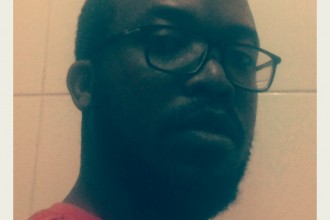In addition to family members and filmmakers, you also speak with some of the leading voices in American film criticism: Jonathan Rosenbaum, A.O. Scott, even Richard Corliss, who has that wonderfully awkward moment reciting some of his old criticisms of At the Movies. [laugh] What was it like discussing Ebert and his legacy with his peers?
It was great because I feel like all three of those guys both respect Roger as a film critic and even admire him in different ways, but they’re also very clear-eyed film critics. I felt like they really gave me all of that. They weren’t shy about voicing their concerns or criticisms, in the case of the Corless-Ebert debate or in the case of Jonathan Rosenbaum talking about his worries and concerns about the show as well. But it was also very clear to me that, despite those reservations at times, there was this profound respect and an ability to articulate what it was that made Roger special as a film critic. To have it come from those three guys was very meaningful for the film.
Life Itself is also full of these intimate and unflinching moments shot during Ebert’s recovery and hospital convalescence. What was it like shooting these scenes?
Well, it was not easy. It was far less easy for Roger to be going through it than for us to film it, but even filming it was not easy. It was at times quite difficult to watch and we felt so much for him. It was also very brave of him, I think, to allow us to film that and even encourage it. And he didn’t encourage it in an “oh, woe is me†way. One of the remarkable things about the way in which he dealt with his illness is that his openness about it always felt like it was about helping other people understand about cancer, about illness, about disability, because maybe they have to deal with it in their own lives. To me, it never felt selfish and pointed towards himself, to say, “Look how brave I am!†In fact, he often talked about it with humour. He talked about grappling with it honestly, and I think he did such a service to people. It’s one of the reasons why I think the movie moves people as much as it does, just like when he wrote about it.
So it was not easy. But I did hope that seeing Roger this candidly, especially with the disfigurement and loss of his jaw, that while it would be very hard to watch at first, that you would soon see past that and just see that it’s still Roger Ebert, it’s still “that guy.†I think that happens for a great many moviegoers. Maybe not everybody. Some people, I’m sure, wish we didn’t show all that. But I felt — and I know Roger felt — that it was important.
From what I’ve read, your relationship with Roger Ebert — beyond his advocacy of Hoop Dreams — was cordial if not particularly close. How did your relationship with Roger and Chaz change throughout the making of the film?
It changed dramatically. Frankly, had Roger not died four months into our filming it would have evolved quite a bit further, no doubt. I think that one of the wonderful things, for me, about making documentaries is that you forge relationships with subjects over the course of making that film, any film… or at least the films that I’ve done. To go well beyond what one might typically have had with them in any other context. So I think with Roger, it absolutely changed because we were doing this thing together. He felt that and I certainly felt that, and I was so impressed with his candor in the face of all that he was going through. I know he probably saw how impressed I was with that.
Yeah, it’s just that… that relationship was cut short, selfishly for me, by his death. And I think with Chaz, it was real evolution. Certainly, she was very happy that I was doing this film and that it was me doing it; she’s been a fan of my films over the years. But she was also in a much more protective place for Roger because that’s the role she’d had to play so often: to protect him, to push him, and to help him. I think one of the wonderful things about that relationship is that, by the end of the film and since then, because we still see each other a lot with the release of the movie, she really came to fully trust me with this story and trust that I would treat Roger with honesty and empathy, which was always my goal.
In fact, the film begins with that great quote about cinema being a “machine that generates empathy,†and I think your film really operates from that perspective. It really puts Roger’s ideas into practice.
Thank you. I take that as high praise. Whether or not you mean it as high praise, I’m gonna take it as high praise. [laughs] Because, for me, that quote… I’ve never read a more clear and concise quote about what movies at their best should do. For me, as a documentary filmmaker… he nailed it! That’s exactly what I’ve always wanted to do and tried to do in my work, but I’ve never been able to put it in those words. [laughs] So when I heard that, I felt like he was really speaking to me. So if this film achieves half of what he meant by that, then I will feel that we were successful.
For more information about ‘Life Itself’, please visit the official website and follow @EbertMovie on Twitter.
Chuck Williamson is a film critic for the magazine.





